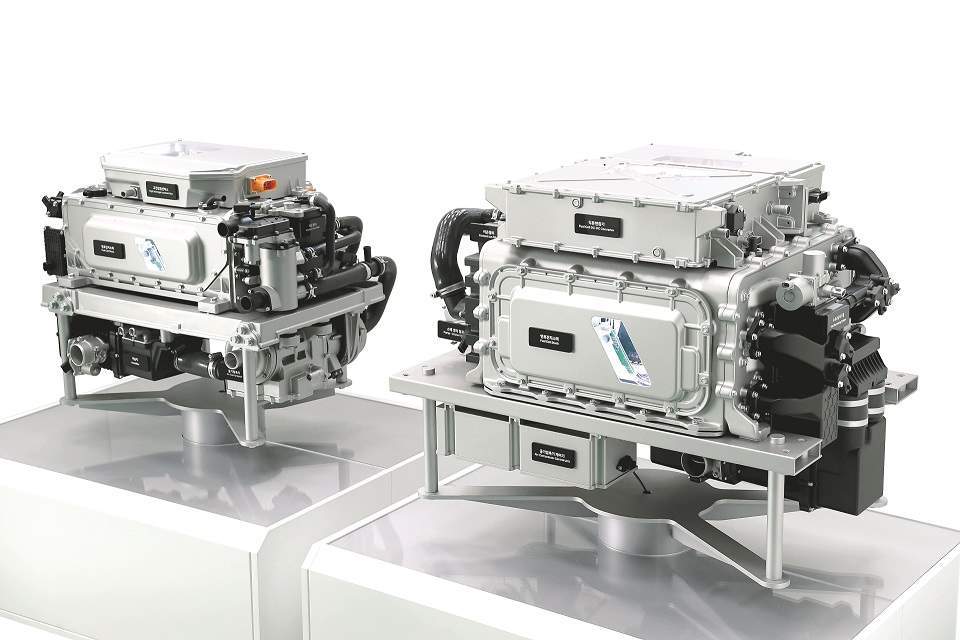The Hyundai Motor Group has set out its vision for hydrogen energy and a global hydrogen society. The group presented its plans to popularize hydrogen by 2040 at the Hydrogen Wave global online forum last week.
اضافة اعلان
The automotive group aims to introduce new technologies and mobility solutions across the transportation and industrial sectors.
Further underscoring its commitment to clean sustainable energy for all kinds of vehicles, Hyundai unveiled unprecedented plans for an all new electric commercial vehicles fleet line up. By 2028, the company plans for all new commercial models to feature either fuel cell electric or battery electric powertrains or fuel cell systems.
The daring strategy will put Hyundai at the vanguard of the commercial vehicles sector, and in the process help to reshape the industry and realize a sustainable clean future.
 (Photos: Handout from Hyundai)
(Photos: Handout from Hyundai)
The online event presented Hyundai’s plans for a new ‘wave’ of
hydrogen-based products and technologies that moves the world closer towards a hydrogen society. The Hydrogen Wave activities kicked off September 7 with an online presentation led by Chairman of the Group, Euisun Chung, and other senior executives. The team outlined the group’s future hydrogen strategy for fuel cell systems and fuel cell-based solutions for mobility and other areas.
Hyundai’s main target, to fully transform its commercial vehicles fleet by 2028, will make it the first global automaker to realize such ambitions for commercial vehicles and will further help facilitate the transition towards true sustainable mobility.
“Hyundai Motor Group’s vision is to apply hydrogen energy in all areas of life and industry such as our homes, work-places and factories. The goal is to make hydrogen readily used for everyone, everything, and everywhere,” Chung said during the online forum. “We want to offer practical solutions for the sustainable development of humanity, and with these breakthroughs, we aim to help foster a worldwide Hydrogen Society by 2040.”
The online global forum will be followed by a physical ‘HydroVILLE’ exhibition, at which the newly introduced practical applications and concepts will be presented. Inspired by the potential of clean hydrogen, The HydroVILLE exhibition will feature various fuel cell concepts for future mobility and power generation.
Since the development of its first fuel cell
electric vehicle (FCEV) in 1998, the group has been preparing for the future of hydrogen. In 2013, the Tucson FCEV (ix35 Fuel Cell) was introduced, opening the door to the mass production of FCEVs. In 2018, the company launched the next-generation fuel cell SUV, NEXO, and in 2020, the world’s first heavy-duty fuel cell truck, XCIENT Fuel Cell.
The group is now backing hydrogen to play a significant role in building a sustainable future and reducing society’s dependence on fossil fuels. After two decades at the forefront of fuel cell technology development, the group will expand its fuel cell technologies for wider application in its vehicles, including additional mobility solutions and various energy utilization.
According to the Hydrogen Council, a global CEO-led initiative of leading energy, transport, industry and investment companies, hydrogen energy will account for 18 percent of global energy demand by 2050, with a market size of $2.5 trillion. The popularization of hydrogen energy will also help cut CO2 emissions by more than six billion tons a year, while creating more than 30 million new jobs.
Read more in Drive





